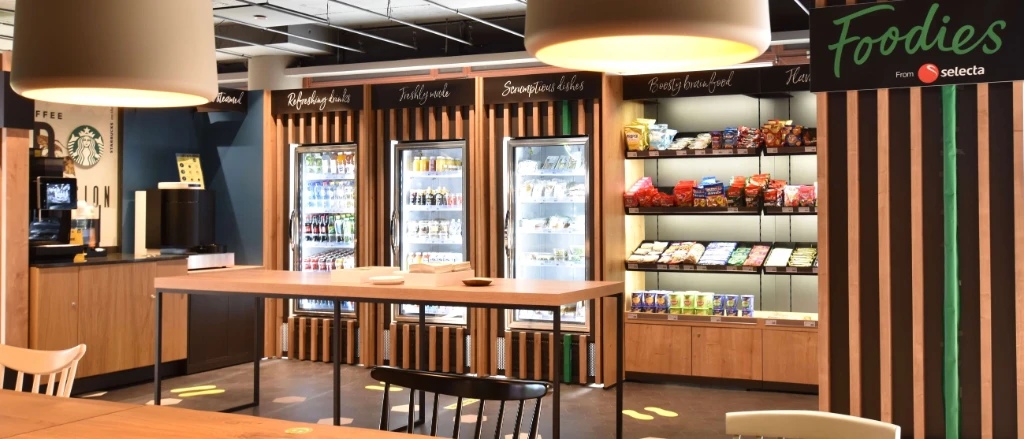Petrol Station Vending & Food Tech Guide
It’s one thing understanding what people may need when they enter a petrol station, but creating a plan that caters to those requirements is a whole other challenge.
Understanding the latest technological trends and how those trends impact the average consumer experience can also be a struggle without clear guidance.
In this guide, we’ll discuss the factors that need to be considered before and during the installation of modern catering solutions in petrol stations, how technology is changing the industry, and any health and safety considerations involved.
Petrol Station Consumer Considerations
Before planning effective solutions to petrol station catering, it’s important to understand what types of consumers use petrol stations.
Leisure Travellers
The leisure consumer likely has more time on their hands and isn’t in a rush. Holiday travellers can be categorised by their:
- Willingness to spend — Because leisure consumers are often more relaxed and are less likely to shy away from treats. This means they’re more willing to spend more money on non-essential items and a wide array of meals and snacks. This increases the petrol station’s ability to upsell other products.
- Available time — Leisure consumers often have more time to browse catering options, as they aren’t constrained by time. Because they have more time on their hands, they’re more likely to explore possible dine-in options, rather than be forced to grab and go.
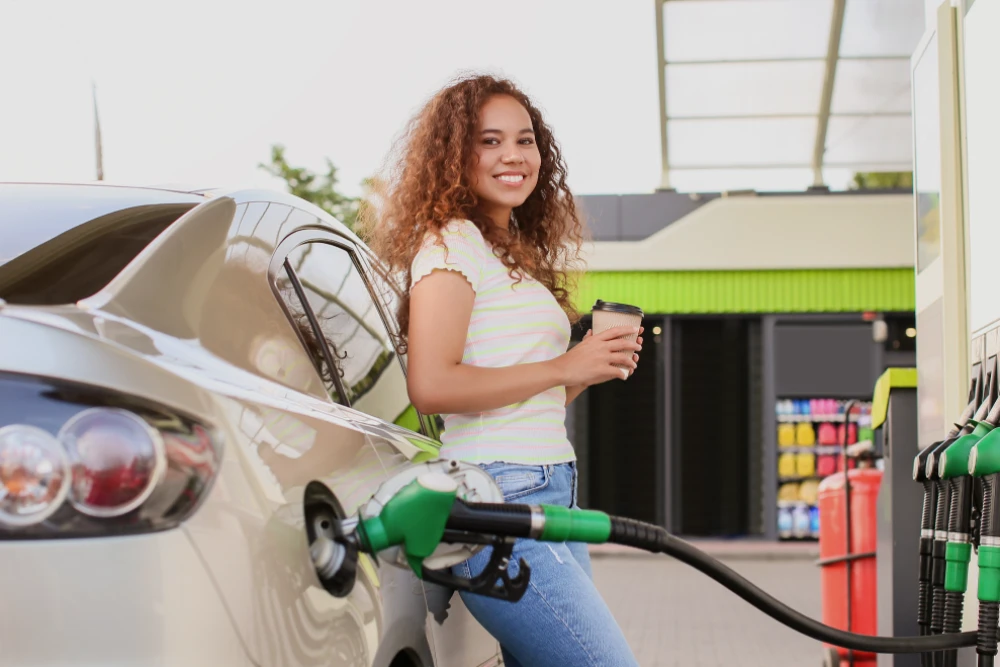
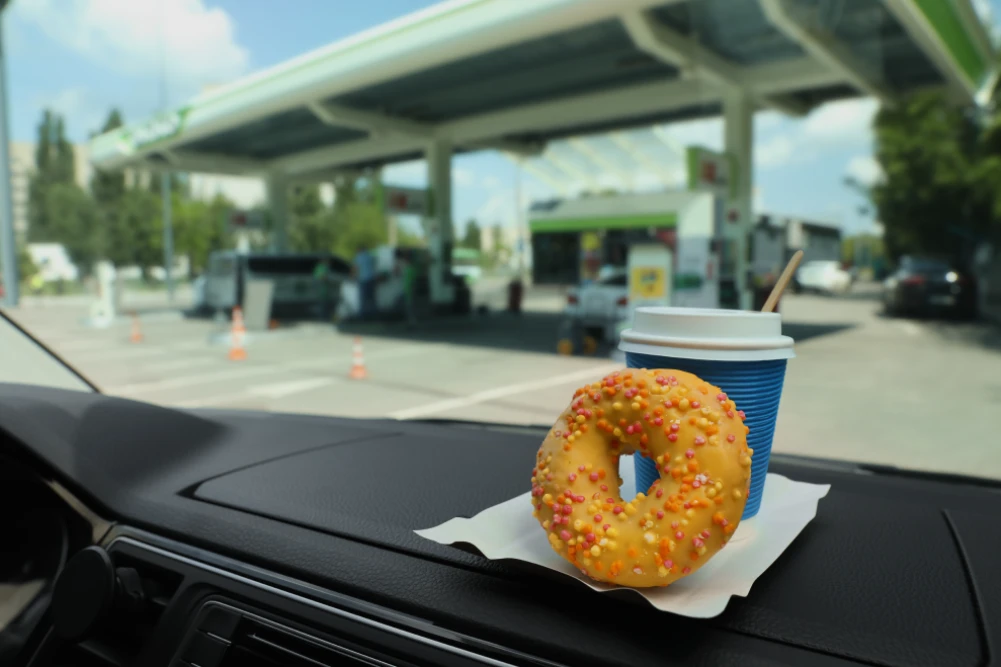
Business Travellers
Business travellers are constantly on the move — so want their catering solutions to be fast and convenient. Because of this, commuters have a
- Lack of time — Commuters typically don’t have a lot of spare time to browse catering options — they often need to get their fuel and go. If they are in need of a bite, they need something quick and easy, so catering solutions need to be pre-made, quick and easy to access.
- Reduced willingness to spend — Business travellers are more likely to keep to a budget – and want quick, cost-effective catering solutions. This means that they’re less likely to spend large amounts of money on snacks.
Logistics workers
Logistics drivers — like delivery personnel or long-distance freight drivers — often spend extended periods of time on the road, so their needs will be different as well.. These types of drivers will likely:
-
Need variety: These customers require a healthy mix of snacks or meals depending on their schedule. This includes a wide variety of healthy options, as well as warm full-course meal options or a range of snacks if they need a grab-and-go option during working hours.
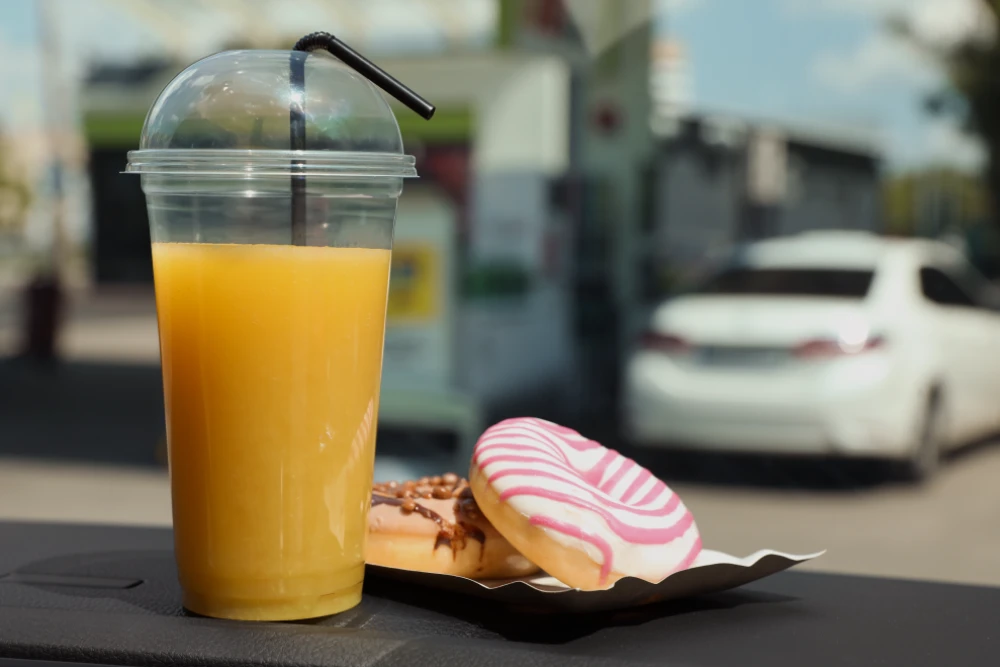
Petrol Station Site Considerations
It’s important for site managers to consider the machines they’re going to use when providing a self-service catering solution as they will influence how long consumers spend browsing food and drink, and the amount of money they’ll spend.
On-site self-service catering services need to be able to keep pace with a constant stream of people — supplying them with a range of options at the touch of a button without taking up too much room or breaking safety regulations. Because of this, the following site considerations must be considered:
- Machines must be safely installed and not impede people’s ability to exit the site in the event of an emergency.
- Getting food must be quick and convenient. These means they must be easy to access, have seamless payments and offer a range of grab-and-go and dine-in options.
- Catering managers must decide on the best locations for different machines to best take advantage of foot traffic and maximise profit.
The benefits of effective on-site catering solutions are:
- Consumers won’t be kept waiting for the products they want — they can get their products seamlessly without waiting or running late.
- Broad site coverage also reduces wait times — allowing queues to flow faster.
- When a wide variety of catering solutions are offered, the chance of split-second purchases from upselling also increases — making it a suitable income stream for sites once set up.
Petrol Station Health & Safety Considerations
Petrol stations need to prioritise the wellbeing of customers and staff. Businesses need to be conscious about how their catering solutions are laid out, and how to safeguard potential customers from potential hazards.
- Everyone has different dietary requirements – be it religious or cultural preferences, veganism or allergen-free alternatives. Petrol station catering solutions must provide food for consumers of all dietary habits. This in turn will increase revenue and satisfy a wider consumer base through providing inclusive options.
- Fire safety is an important aspect that must be considered. This is especially important in a petrol station that deals with flammable liquids. Access to the petrol station — and any micro market or catering area – should be open and easy to navigate. It's vital that catering managers examine the floor plan and only install solutions that don’t block exit routes in the event of a fire.
- It’s important to properly secure all machines too, taking great care to clear any hanging cables or protruding corners. This avoids risks associated with slips, trips and hazards and prevents potential injury.
- It’s also important to adequately warn customers of risks through the signposting of hazards. This includes potential chemical burns, flammable materials, or risks of allergens.
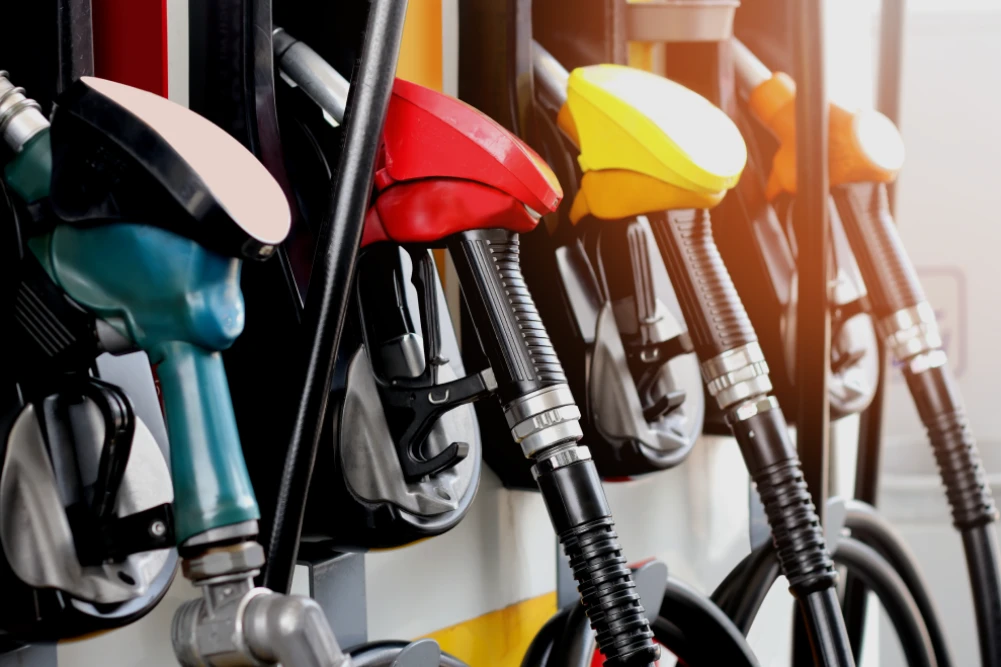
Petrol Station Sustainability Considerations
Sustainability is a growing concern that modern catering solutions need to address. Catering managers considering installing a self-service solution need to evaluate how technology can be used to lower emissions and minimise waste.

Some of the sustainability factors that should be considered are:
Food packaging — The packaging that’s used to protect the goods in the machines needs to be environmentally friendly and sustainable. Catering managers should source products from providers that focus on minimising the amount of packaging used — or use only recyclable or biodegradable materials — to cut down on landfill waste.
Leveraging technology — Many smart fridges and other self-service catering technologies boast features like compartmental cooling, which cools products at different temperatures to improve shelf life and save energy. Other machines also have energy-saving and power-monitoring functions, allowing them to reduce power during periods of little use. Not only do these features prolong shelf life of products — keeping them fresher for longer — but optimise energy use to keep costs and emissions down.
At Selecta, we cater to several industries and can help tailor the best solutions to suit you. For more information on our range of products, contact us now.

Message Sent Successfully
Thank you! Your message has been received. We’ll get back to you soon.
Something Went Wrong
We couldn’t send your message. Please try again, or come back in a moment.
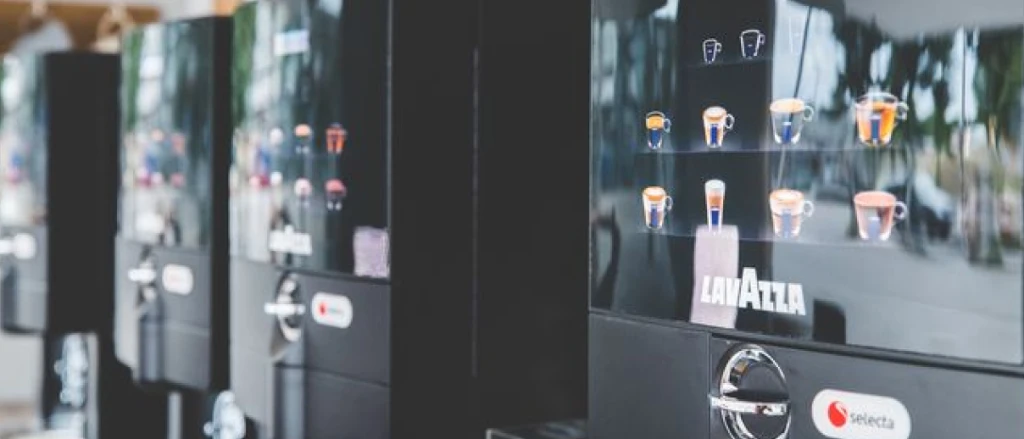
-min.webp)
